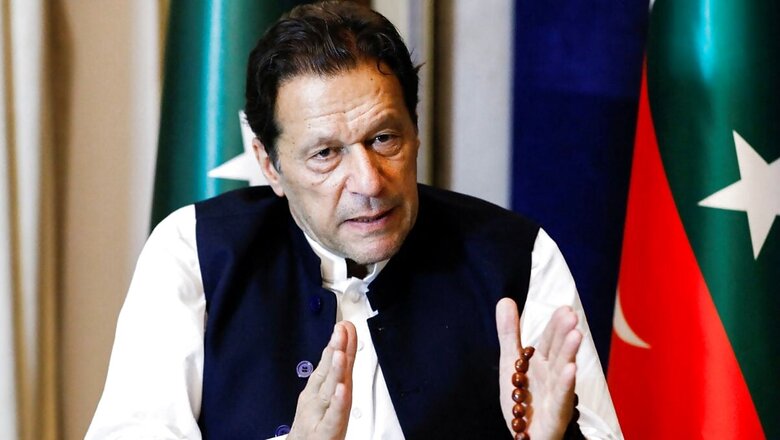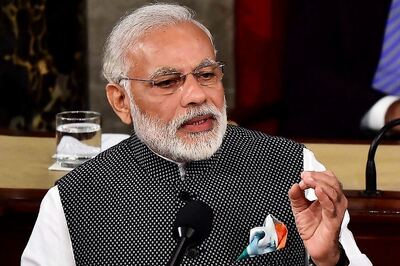
views
Amid Pakistan’s financial crisis, Pakistan Tehreek-e-Insaf (PTI) Chairman and Former Prime Minister Imran Khan, in a tweet, called the country’s government “fascist".
“With complete disregard for the rule of law, this fascist govt – far worse than General Musharraf’s martial law, has a one point agenda which is to crush PTI," he tweeted.
Khan further wrote: “Meanwhile, Pak economy is going into a free fall. Dollar is at Rs. 315 in the open market, while for non CNIC holders the rate is between Rs 320-325. The gap between the official rate & open market rate is Rs30/$. This dollarization of economy means no local or foreign investment into the country, which will result into contraction of the GDP and worse, lead to hyperinflation."
“The PDM leaders have billions of dollars stashed abroad, and understandably they are not pushed. The question is, how on earth is the Pakistani establishment allowing the country to head towards a complete economic meltdown?" he further added.
With complete disregard for the rule of law, this fascist govt – far worse than General Musharraf's martial law, has a one point agenda which is to crush PTI.Meanwhile, Pak economy is going into a free fall. Dollar is at Rs. 315 in the open market, while for non CNIC holders…
— Imran Khan (@ImranKhanPTI) May 29, 2023
IMF HELP
Meanwhile, Pakistan will share its upcoming budget details with the International Monetary Fund (IMF) in order to unlock stalled funds, Finance Minister Ishaq Dar said on Sunday.
Hopes for a resumption of an IMF deal are diminishing, analysts say, with a bailout programme agreed in 2019 due to expire on June 30 at the end of the 2022-23 fiscal year.
Dar said he would like the IMF to clear its 9th review before the budget, which is due to be presented in early June, as all the conditions for that had already been met.
The IMF funding is crucial for the $350 billion South Asian country, which faces an acute balance of payments crisis. This has raised concerns of a sovereign default, something which the minister dismissed.
The central bank’s foreign reserves have fallen as low as to cover barely a month of controlled imports. Pakistan’s economy has slowed, with an estimated 0.29% GDP growth for 2022-2023. “They have asked for some more things again, we are ready to give that too, they say that give us budget details, we will give it to them," Dar said in an interview with local Geo TV. He said it would not work for Pakistan if the IMF combined the 9th and 10th review of the bailout, adding, “We will not do it, (we) see this is (as) unfair."
The IMF’s $1.1 billion funding to Pakistan, which is part of the $6.5 billion Extended Fund Facility agreed in 2019, has been held up since November. Islamabad hosted the IMF mission in February to negotiate a series of fiscal policy measures to clear the 9th review.
Pakistan had to complete a series of prior actions demanded by the IMF, which included reversing subsidies, a hike in energy and fuel prices, jacking up its key policy rate, a market-based exchange rate, arranging for external financing and raising over 170 billion rupees ($613 million) in new taxation.
The fiscal adjustments have already fuelled Pakistan’s highest ever inflation, which hit 36.5% year-on-year in April.
Inputs from Reuters


















Comments
0 comment